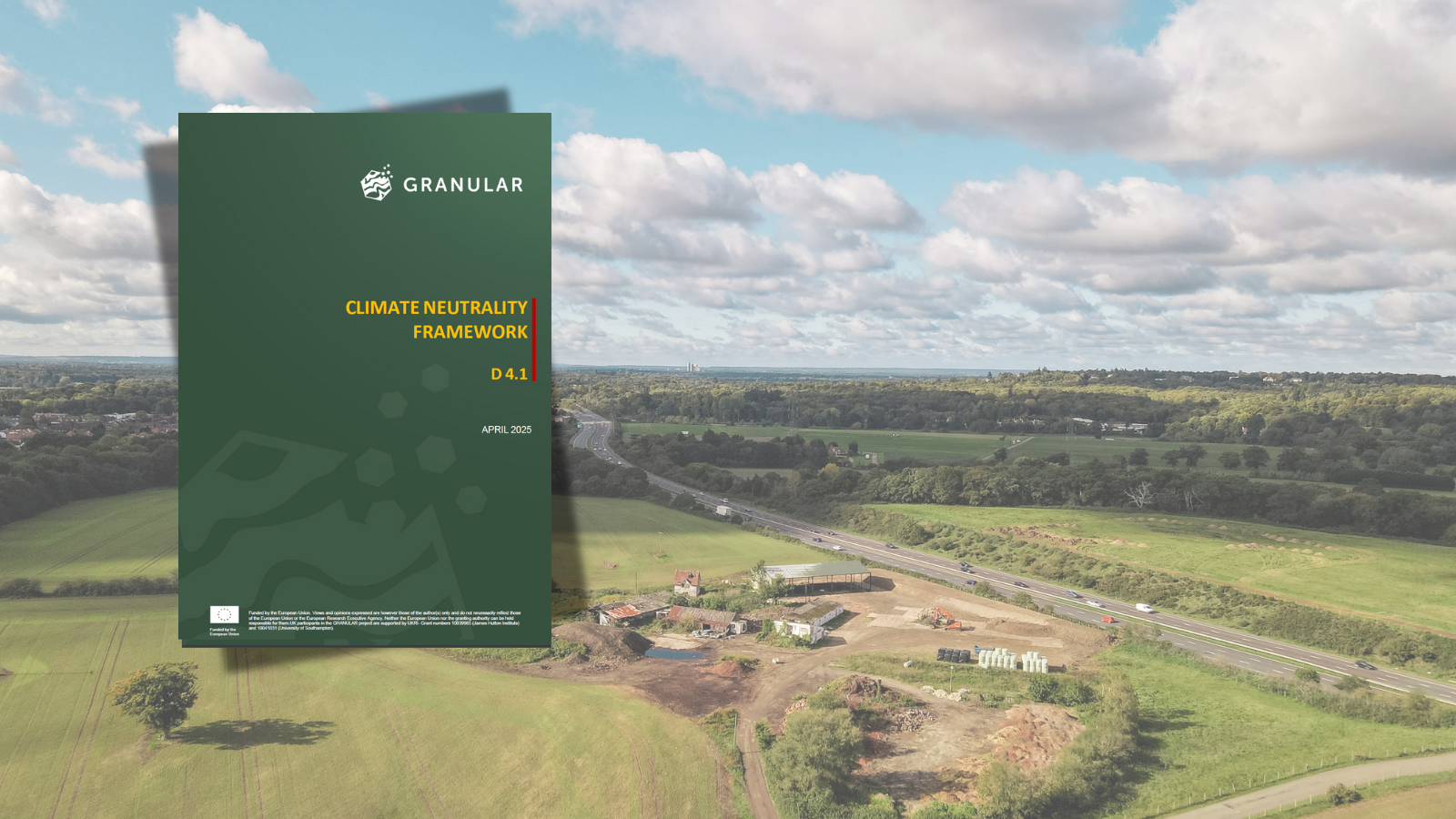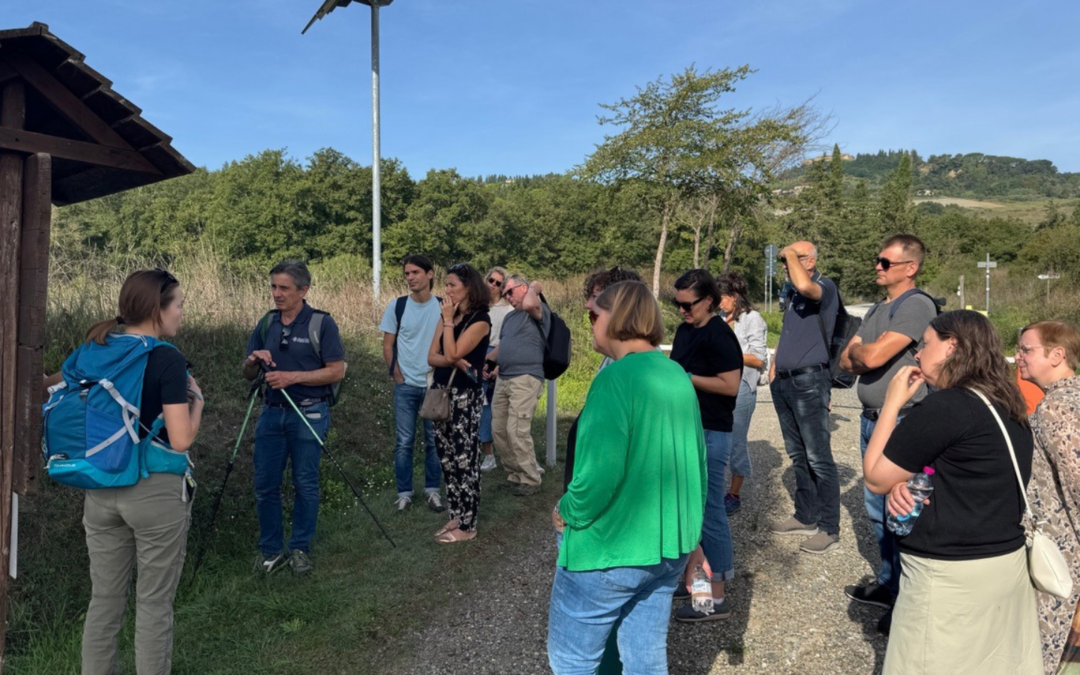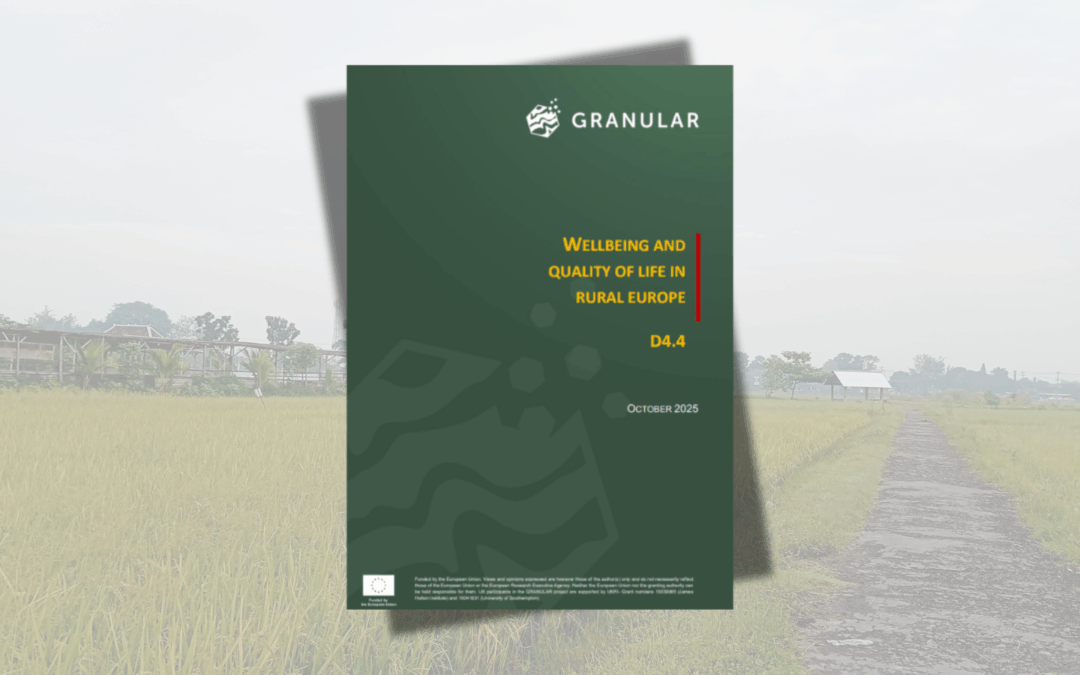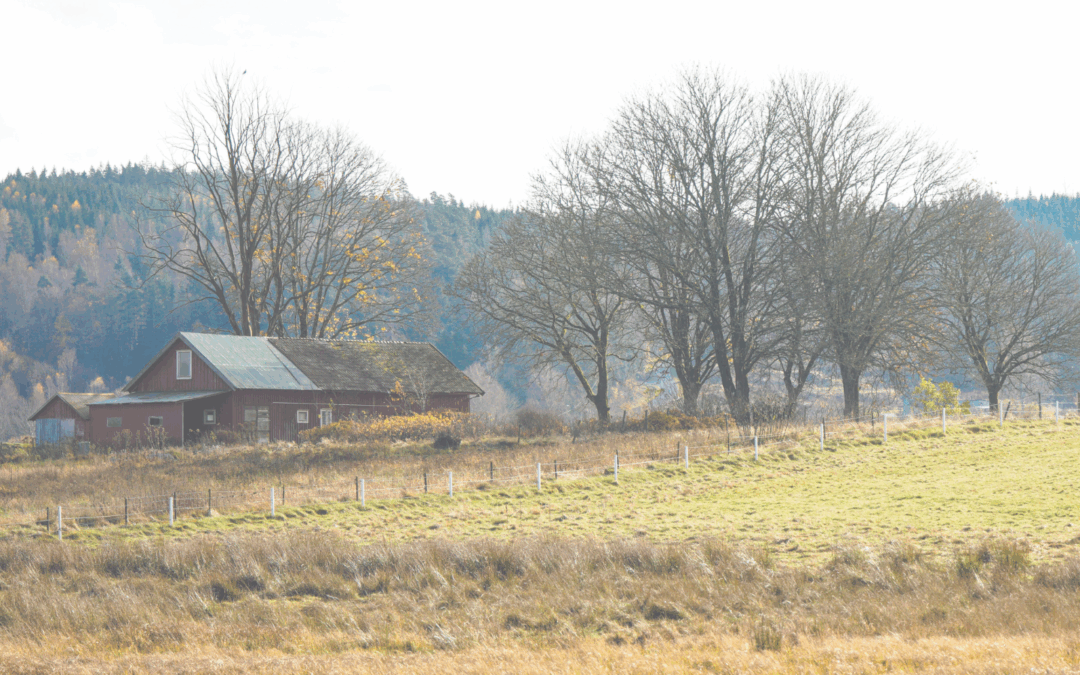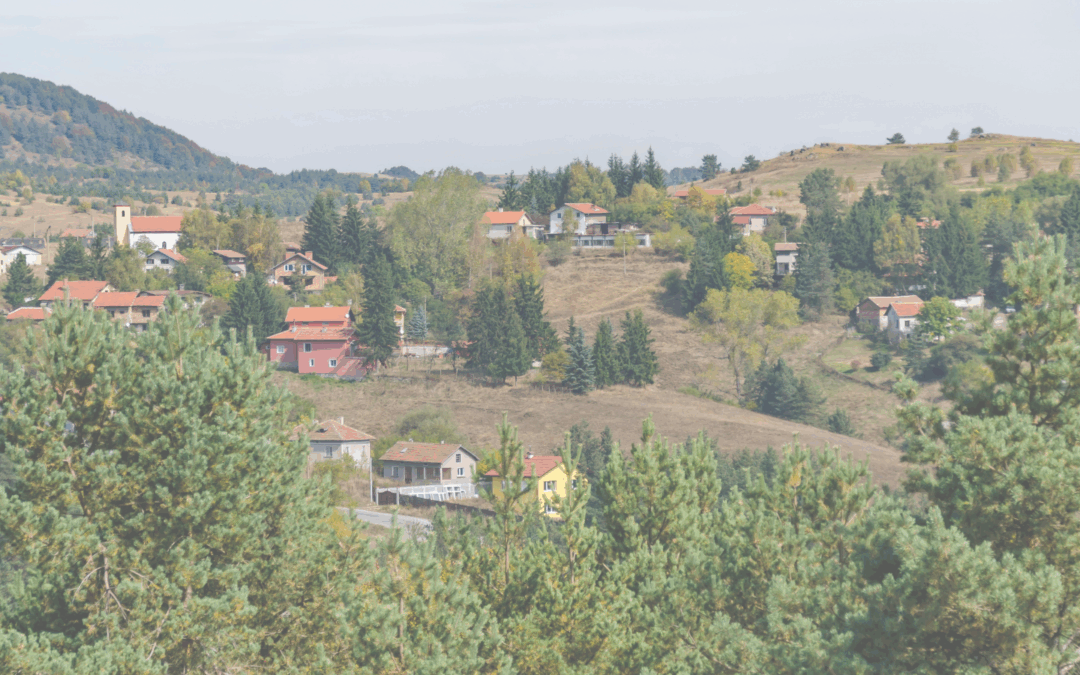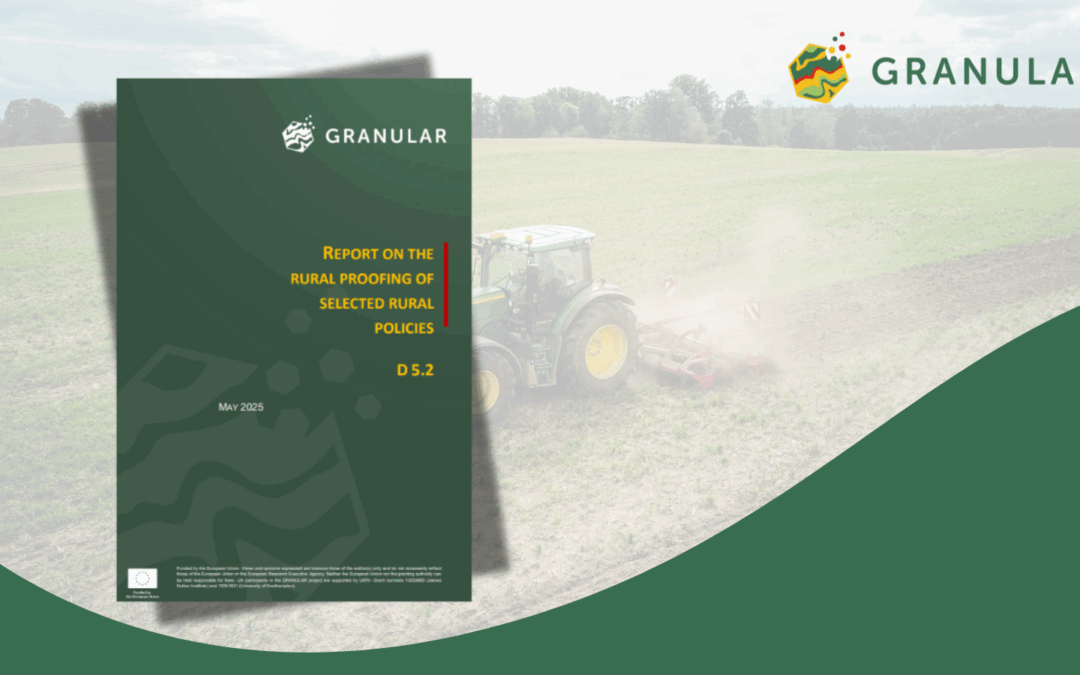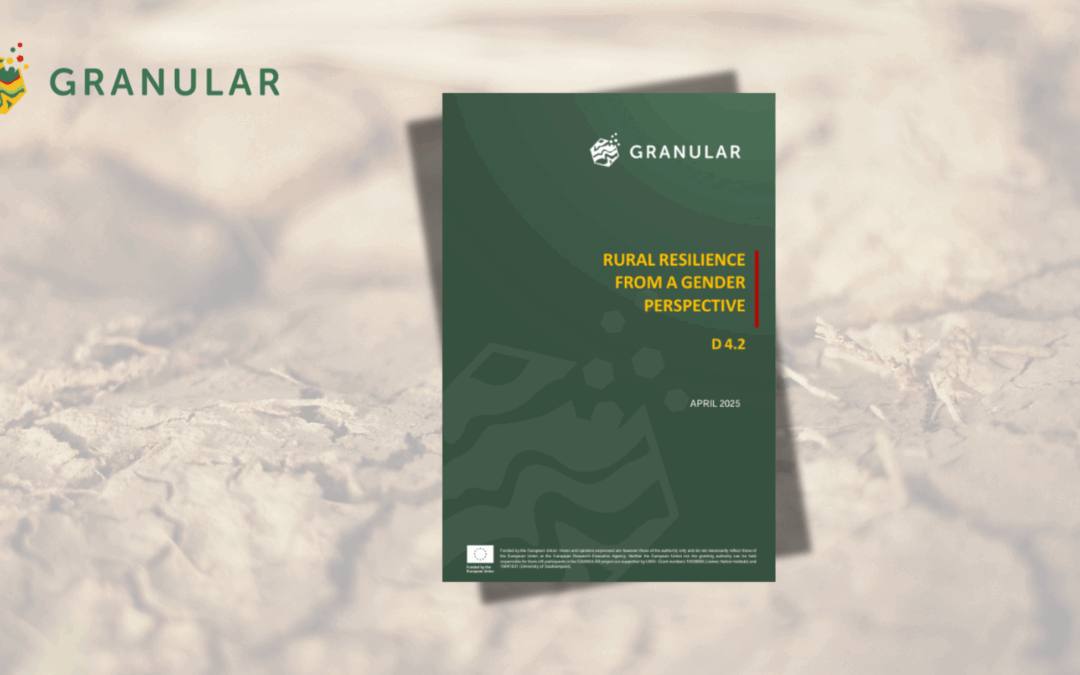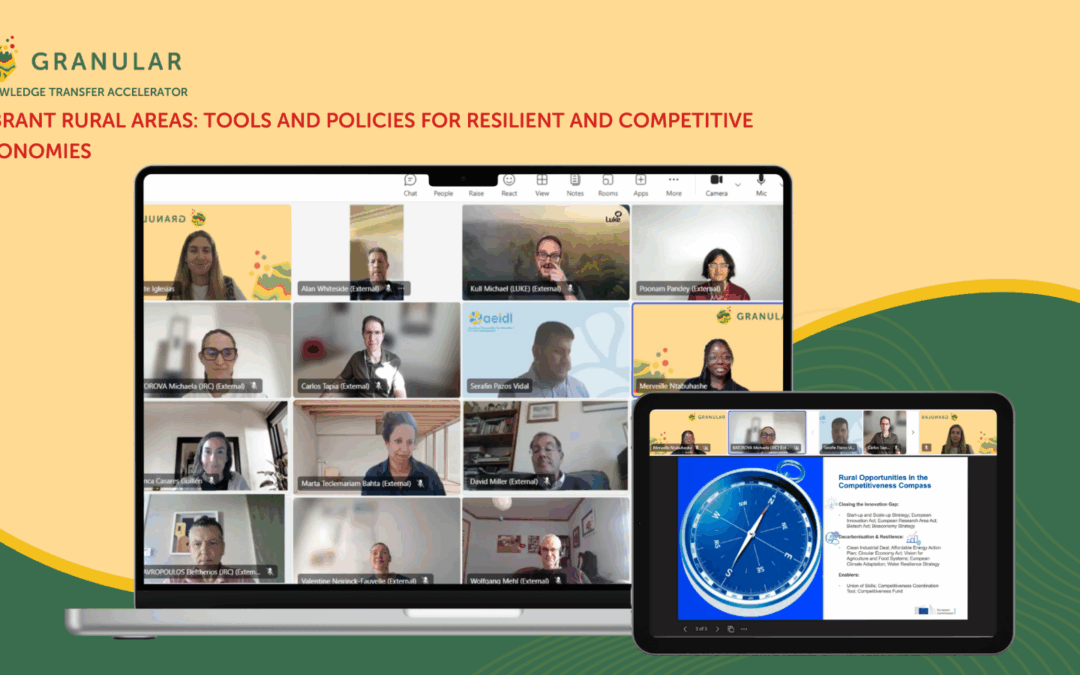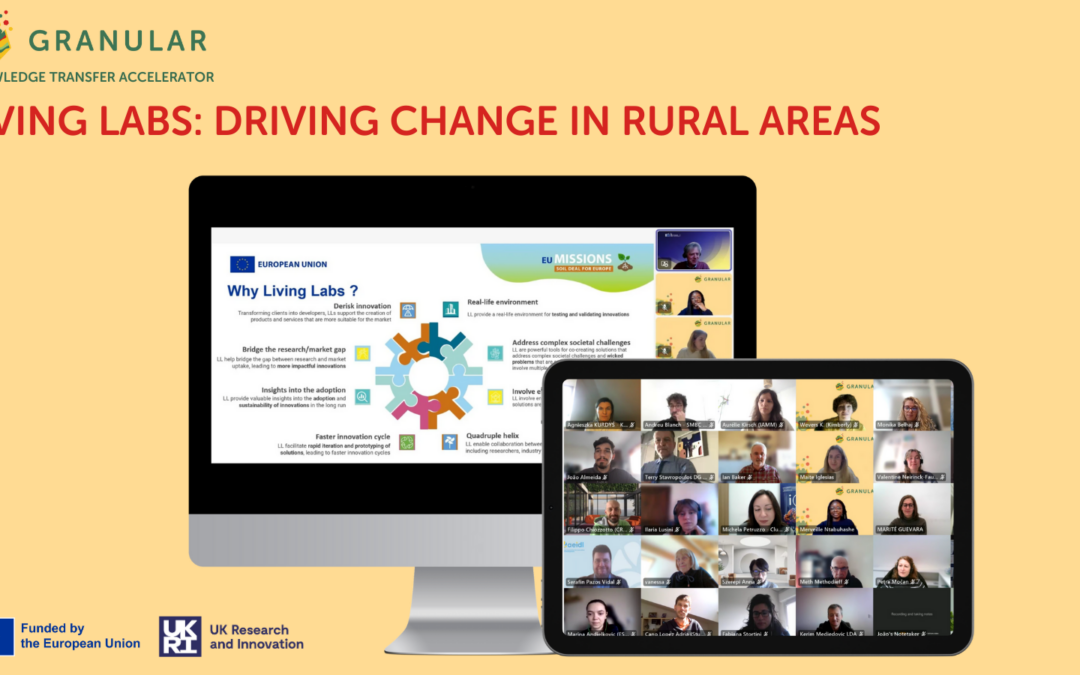Author: Yuval Damari (Mediterranean Agronomic Institute of Montpellier)
As Europe advances towards its climate neutrality goals, rural areas play a crucial role in this transformation. However, most existing tools for monitoring climate neutrality are primarily designed for urban contexts, often overlooking the unique environmental, social, and economic realities of rural regions. From the intricacies of small-scale farming to the challenges of limited public transport, rural areas face distinct challenges – and opportunities – that require tailored approaches.
Why do we need a rural climate neutrality framework?
To bridge this critical gap and empower rural communities in their climate action, the GRANULAR project released a conceptual and operational framework to measure climate neutrality in rural areas. This framework offers a structured approach to tracking progress, while still adaptable, ensuring it remains relevant and responsive to diverse local needs.
An integrated approach for rural realities
The report is an integrated framework grounded in values such as environmental sustainability, fairness, resilience, and affordability. It proposes over 100 indicators covering domains like energy, mobility, agriculture, and waste, with the flexibility to adjust indicator weights and benchmarks based on local priorities.
This allows local authorities, researchers, and practitioners to use a standardised yet locally sensitive tool to monitor their climate neutrality efforts. The methodology balances scientific rigor with practical usability, ensuring that rural communities can engage with the data meaningfully.
What makes the GRANULAR framework unique?
The framework combines insights from literature, policy reviews, expert interviews, and participatory surveys. It also explores public interest in different sustainability domains by analysing trends in online search volumes. This innovative weighting method allows the framework to reflect societal concerns while maintaining scientific relevance.
To assess its robustness, the framework was tested through a series of sensitivity analyses, including the removal of specific values or domains and the simulation of different policy scenarios (such as prioritising environmental protection or social inclusion) to examine how these shifts affect overall scores.
Towards smarter rural climate action
This GRANULAR framework contributes to a much-needed tool to support rural areas in designing, evaluating, and communicating their climate neutrality strategies. With its adaptable structure and evidence-based design, the framework provides a meaningful way to reflect local realities while staying aligned with broader sustainability goals.
Access the report here.
